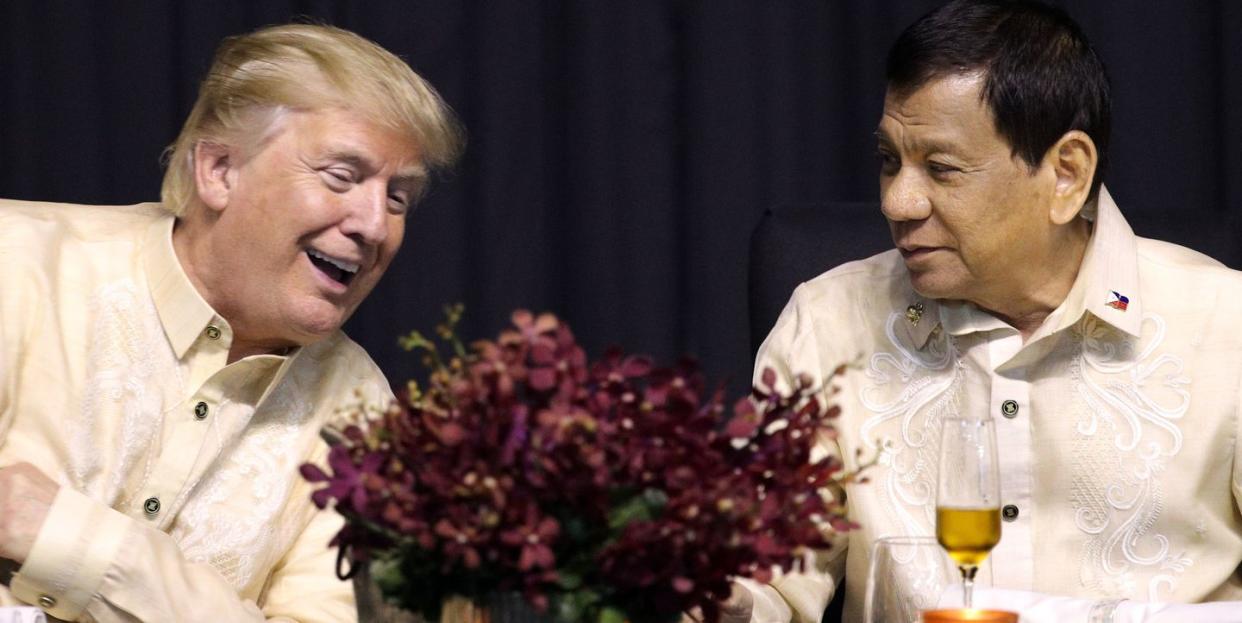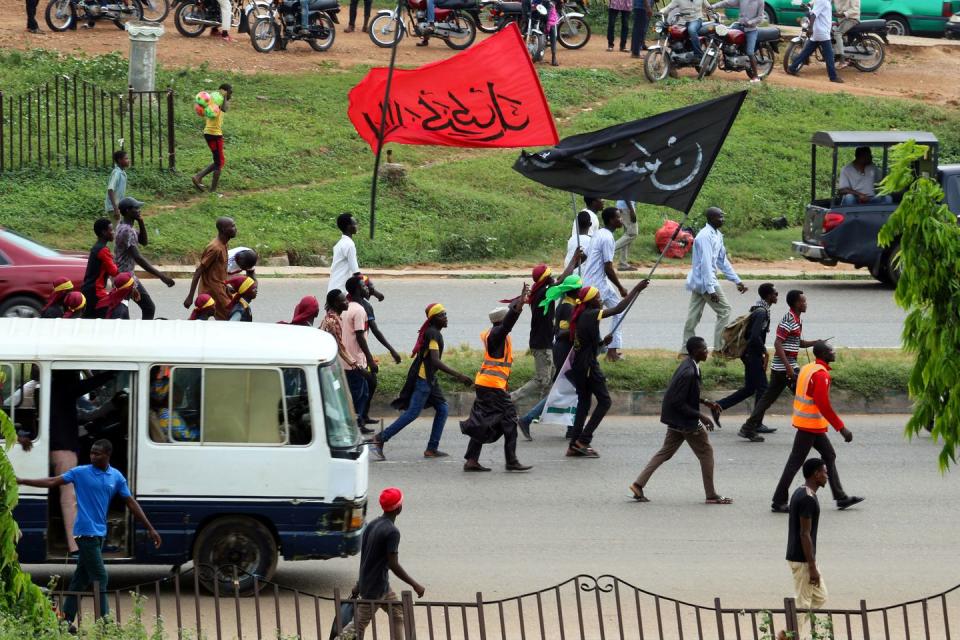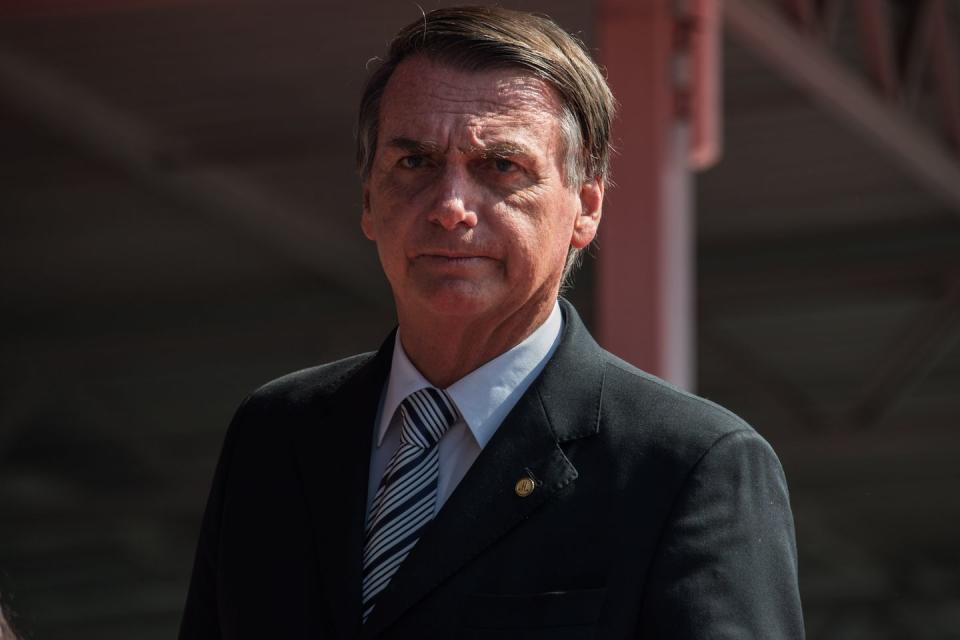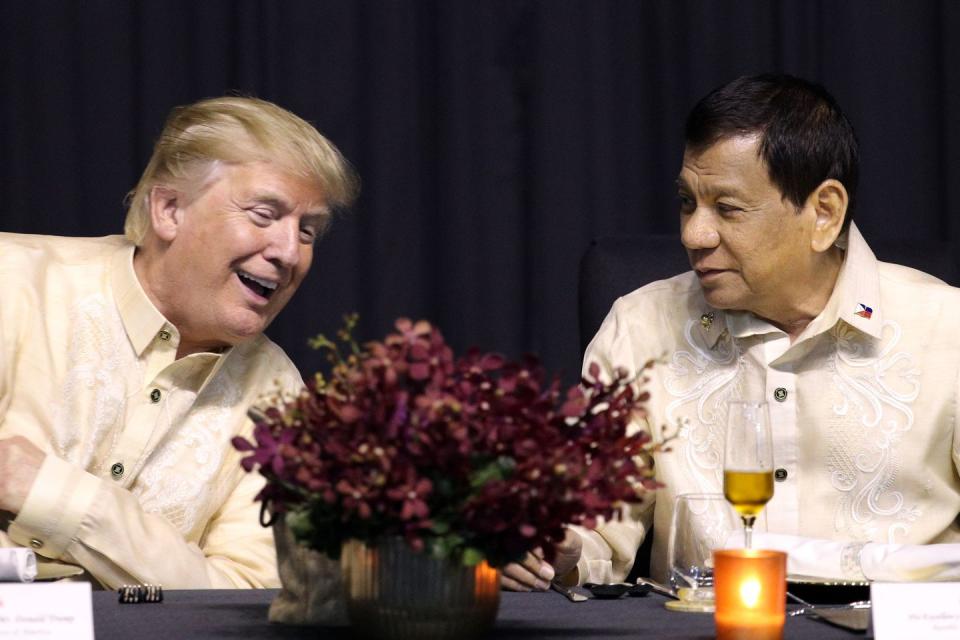Donald Trump's Words Are a Global Disaster

Jim Crow was a national nightmare, but for the American government, it was also terrible for the nation's image. The Soviet Union, eager to shift attention away from its own myriad abuses, made hay of the United States's mistreatment of African Americans. When Arkansas governor Orval Faubus dispatched the National Guard to prevent the Little Rock Nine from integrating their high school in 1956, a USSR daily was righteously indignant.
"The patrons of Governor Faubus ... who dream of nooses and dynamite for persons with different-colored skins, advocates of hooliganism who throw rocks at defenseless Negro children," wrote the Soviet paper. "These gentlemen have the audacity to talk about 'democracy' and speak as supporters of 'freedom.'"
The Soviet tactic of deflecting criticism by invoking American racism was so widespread that it became a punchline-any U.S. rebuke of Soviet food shortages, government censorship, or the repression of dissidents could be countered with: "And you are lynching Negroes."
So we’ve known for decades that trouble at home not only inflicts suffering on those who live within our borders but also enables abuses abroad, undercutting American moral authority and offering pat excuses for world leader eager to justify their own crimes. It's easy to grow numb to our wildly undisciplined president's ever-escalating rhetoric. But even when Donald Trump's threats and ramblings don't rack up a body count at home, they're being used to excuse state crime and prop up dangerous regimes all over the globe.
Here are some of the ways our president's words have helped changed the world for the worse.

Nigeria
The speed with which Trump’s rhetoric was invoked to excuse foreign misdeeds proved astonishing this week. On Monday, members of the Nigerian army opened fire on Shiite protestors. Some in the crowd had tossed rocks at the soldiers, who were captured on video responding with gunfire. The government reports that three people died, while Amnesty International says the death count is closer to 40.
On Thursday, Donald Trump helpfully provided the Nigerian army with justification for the massacre when he suggested that the U.S. troops he dispatched to our southern border fire upon members of a migrant caravan, even if they're armed only with rocks. "If they want to throw rocks at our military, our military fights back," said Trump "We're going to consider-and I told them, consider it a rifle. When they throw rocks like they did at the Mexico military and police, I say, consider it a rifle." The very next day, Nigerian army’s official Twitter account posted a video of Trump’s statement with the note, “Please Watch and Make Your Deductions.”
The protestors were shot days before Trump made his proclamation, so it’s not as though Trump’s statements were on the soldiers' minds when they pulled their triggers. But the Nigerian state can now use Trump’s statements as a shield from the international criticism its actions are attracting. According to The New York Times, a spokesperson for the Nigerian Army explained that the tweet was a rebuke to Amnesty International's damning account of the massacre. "We released that video to say if President Trump can say that rocks are as good as a rifle," said the spokesman, "who is Amnesty International?"

Brazil
Brazil’s Jair Bolsonaro was elected just a week ago, so he hasn’t had the opportunity to implement his terrifying nationalist policy goals. But Bolsonaro crafted his successful campaign in Trump’s image, and even ran on a pledge to "Make Brazil Great Again." (For Bolsonaro, Brazil was great when it was ruled by a military dictatorship.)
His vulgarity and ease with hateful language made for easy comparisons with Trump. Bolsonaro told a fellow member of congress in 2014 that he wouldn’t rape her because she was "not worthy of it." He’s made racist comments about Afro-Brazilians, vowed to undermine protections for indigenous peoples’ lands, and identified himself as a "proud homophobe."
Bolsonaro was Trumpian when Trump was still just a reality TV show host, but our president’s ascension aided his. First, it helped normalize the idea that an openly biased nationalist could be a fit leader for a democratic country. Second, Trump’s election offered a playbook, a path to power for all strongmen who would follow it. During his election fight, Bolsonaro noted that Trump has, like him, been condemned as a bigot. "The American people didn’t swallow that, and he was elected," Balsonaro said. "In Brazil something similar is happening."

The Philippines
Trump’s relationship with Kim Jong-un and his admiration for Vladimir Putin may have attracted most of the headlines, but there’s another bloodthirsty authoritarian who also has a special place in our president’s heart: Philippine President Rodrigo Duterte. He loves to joke about rape and once called Barack Obama a "son of whore." The two get along so well that Duterte literally sang Trump a love song.
Trump lent his most horrifying rhetorical support to the Philippine president when he advocated for the death penalty for drug dealers. Duterte’s "war on drugs" has led to thousands of suspected addicts and dealers murdered by police. Trump's endorsement of drug dealing as a capital offense in the U.S. undermined the global outcry against Duterte's drug war. Our Supreme Court already found it unconstitutional to execute people for offenses other than murder, which means it's highly unlikely that Trump's plan can be implemented in our country. But the President of the United States endorsing such cruelty gives moral ammunition to Duterte’s killing squads. It’s hard for America to condemn another nation for fulfilling our own president’s policy goals.
Venezuela, Malaysia, Syria, Cambodia, Uganda, China, Russia…
One of Trump’s favorite rhetorical devices has been adopted by almost too many despots to count, and has been used to brush off accusations of all manner of abuses. When Amnesty International found that 13,000 people were killed in a Syrian military prison, Bashar al-Assad dismissed the organization’s report as a forgery from our "fake news era."
A public official in Myanmar declared that there’s "no such thing as Rohingya [people]," the Muslim minority group that’s been the victim of a brutal ethnic cleansing. The official said reports of the ethnic group's very existence were "fake news."
China may be one of Trump’s favorite foes, but that hasn’t stopped its state media from embracing the term. When facing accusations of torturing activists, the state news agency declared the story "essentially fake news." Though Trump didn’t invent the phrase "fake news," he adopted it as a catch-all dismissal of any criticism headed a leader’s way.
Politico spoke to international affairs professor Cas Mudde, who described Trump’s use of the term as handing a "permission slip" to other nations. "A lot of countries look to the U.S. partly for inspiration, but mostly as the policeman of the world," said Mudde. "If you see that the policeman actually doesn’t care about freedom of speech and the free press anymore, you feel that you don’t have to care too much either."
('You Might Also Like',)

